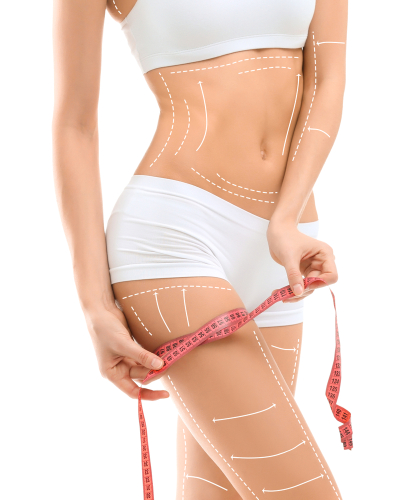Liposuction is performed to remove unwanted pockets of fat from the body. It is one of the most popular cosmetic surgeries and can bring about some of the most satisfactory body contouring results. But before you rush into your cosmetic surgeon’s office, here are a few of the most common questions patients ask about liposuction.

1. Is This a Substitute for Weight Loss?
Weight loss is hard. There is nothing anyone can say to deny that. Between the busy life you lead, stress, and genetic factors, some weight is just impossible to lose on your own. This is where liposuction comes in—to remove stubborn pockets of fat that are resistant to diet and exercise. That being said, liposuction is not a substitute for weight loss and is not a weight loss surgery. Weight loss surgeries affect the size of your stomach whereas liposuction reduces the number of fat cells that you have in a particular area of your body. The two procedures are not interchangeable. While liposuction can be an asset after you have lost weight traditionally or with surgery such as gastric bypass, liposuction should not be used to attain significant weight loss.
2. How Much Weight Will I Lose?
Most liposuction patients achieve a significant loss of inches, not a substantial loss of pounds. Even in the most successful patients, weight loss is typically only between five and 10 pounds. However, the reduction of inches in the treatment area, as well as the tone and definition of those areas, will significantly outshine the number on the scale. As you’ve seen above, liposuction is not designed for substantial weight loss; it is meant to sculpt and define your figure.
3. Is the Fat Permanently Gone?
There is a common misconception that when fat is removed through liposuction, it appears on another part of the body. This is not true in any way, and if a patient does experience weight gain in a new region of the body, liposuction is not responsible. Every person is born with a distinct number of fat cells. This number will remain the same throughout your life. Fat cells can increase or decrease in size, but not in quantity. When liposuction is performed, fat cells are physically removed from your body and cannot multiply or increase in number. This is why liposuction is considered to be a permanent procedure. Now, just because the fat cells are gone permanently does not mean that the remaining fat cells cannot grow in size. A healthy lifestyle should still be followed to maintain a consistent weight.
4. Can Liposuction Be Used Anywhere?
Liposuction is approved for use nearly anywhere on the body. While liposuction is conventionally performed on the abdomen, it is safe for use on the hips, back (including the bra fat roll), buttocks, thighs, knees, ankles, upper arms, chest, and neck. Liposuction can help restore defined contours anywhere you wish.
5. Is Liposuction Safe?
While no surgical procedure comes without risk, the risks associated with liposuction are minimal. Most patients achieve stunning results through liposuction with no complications or lasting side effects. The most common adverse side effects from liposuction are bruising and swelling, but these will dissipate with time. More serious complications include bleeding or infection, but these are very uncommon.
To learn more about the benefits of liposuction and how liposuction can remove your unwanted pockets of fat, contact PREMIERE Center for Cosmetic Surgery by calling (813) 400-1465 to set up a consultation.

